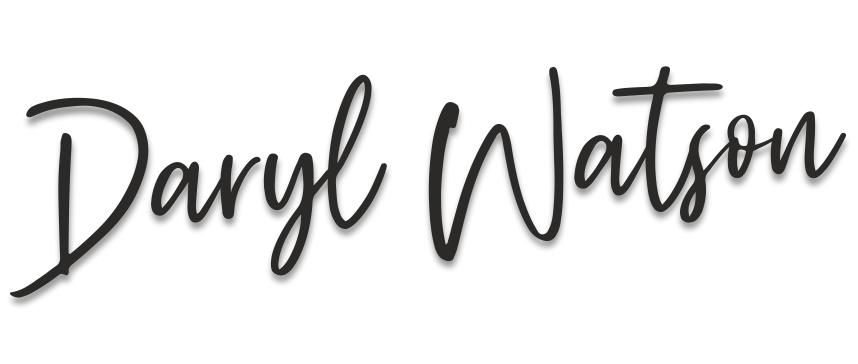Tag Archive for: listening
Safety, Instruction and Preparation
 The training covered the essential things we must know, including the safety harness, a detailed overview of the main parachute and the reserve. It was reassuring when the instructor said that he’d never had to deploy the reserve “in over 2000 jumps”. Then he quipped “so I’m overdue one now!” – we all laughed, nervously…
The training covered the essential things we must know, including the safety harness, a detailed overview of the main parachute and the reserve. It was reassuring when the instructor said that he’d never had to deploy the reserve “in over 2000 jumps”. Then he quipped “so I’m overdue one now!” – we all laughed, nervously…Penalty Points…
Frustration
What frustrates you?
Frustration: “…the feeling of being upset or annoyed as a result of being unable to change or achieve something.”
I know that an upside of frustration is that it tells you that you still have some important lessons to learn in a specific area.
Are you like me? Gripping a few prickly problem perhaps? You try extremely hard to resolve the issue yourself. Then anxiety and stress start to build. We become our own worst enemy, when infuriatingly despite our best efforts, we can’t resolve the matter. Grrrr!
 I was like that for a little while on Saturday morning. What was this huge grizzly challenge? Of all things – a wooden gate! My woodworking skills aren’t amongst my top abilities and my stubbornness meant I wasn’t for listening to any suggestions either.
I was like that for a little while on Saturday morning. What was this huge grizzly challenge? Of all things – a wooden gate! My woodworking skills aren’t amongst my top abilities and my stubbornness meant I wasn’t for listening to any suggestions either.
Yet, sometimes a rescuer comes along and helps. With patience, kindness and tender words, they help you to see things differently, offering alternative solutions to the issue at hand. The answer can only be received if you humble yourself, set aside your pride and listen!
As the tension subsided, working together we resolved the matter. Gate fixed! Thank you to my darling wife, for her forbearance, restraint and composure to deal with grumpy old me. Lesson learned, again!
So, you want to be a mentor?
- 𝐋𝐢𝐬𝐭𝐞𝐧 with compassion, empathy and understanding – Deep or Active Listening.
- 𝐀𝐬𝐤 𝐐𝐮𝐞𝐬𝐭𝐢𝐨𝐧𝐬, be curious, seek clarity, probe, ask why and help each mentee to ask questions of themselves.
- 𝐂𝐡𝐚𝐥𝐥𝐞𝐧𝐠𝐞 – move their learning from their comfort zone to their stretch zone.
- Give of your 𝐓𝐢𝐦𝐞, frequently, consistently, intimately, 1-1
- Be fully 𝐏𝐫𝐞𝐬𝐞𝐧𝐭. When you meet, create a psychologically safe space, and ensure there are no distractions.
- Storytelling. Share your experiences that helped you succeed. Bring your stories to life.
- Make a 𝐏𝐥𝐚𝐧, set objectives and begin with the end in mind.
- Provide 𝐒𝐮𝐩𝐩𝐨𝐫𝐭 & 𝐄𝐧𝐜𝐨𝐮𝐫𝐚𝐠𝐞𝐦𝐞𝐧𝐭 to your mentee to push through difficult challenges. Be a trusted sounding board.
- 𝐀𝐝𝐯𝐢𝐬𝐞 & 𝐑𝐞𝐟𝐫𝐚𝐦𝐞 – make suggestions, offer different perspectives to help a mentee become unstuck through self-reflection.
- Give 𝐂𝐨𝐫𝐫𝐞𝐜𝐭𝐢𝐨𝐧 & 𝐈𝐧𝐬𝐭𝐫𝐮𝐜𝐭𝐢𝐨𝐧 from time to time, to avoid potential pitfalls.
Friendships
I love this picture! Look at our huge smiles. I can still remember, as if it were today, something subtle happening, that we were scarcely aware of – we all became friends, each of whom who have subsequently touched my life for good.
That day, the six of us made some powerful professional breakthroughs and connections in our own community of practice. But above all, the part I cherish most of all, was the power of true friendship.
Friendship
Listening, laughing, understanding, being a little silly together and empathy were in all in evidence as we embarked upon a new journey in our work on extra-dependent teams.
“A friend is a priceless possession because a true friend is one who is willing to take us the way we are but is able to leave us better than he found us. We are poor when we lose friends because generally they are willing to reprove, admonish, love, encourage, and guide for our best good. A friend lifts the heavy heart, says the encouraging word, and assists in supplying our daily needs. As friends we will make ourselves available without delay to those who need us.” – Marvin J. Ashton
The photo was taken in Zurich, in December 2019, just a few weeks before the pandemic and lockdown. Subsequently, the six of us have met by Zoom on several occasions. Our conversations have been moments I hold dear, through what has been a challenging year.
Somehow these special moments of friendship seem to have a long shelf life, which I am so grateful for. They can sustain you even long after the moment has passed.
Good friends are a little like stars, you may not always see them, but you know they are there!
My conclusion – the only way to really have friends, is to be one yourself.
Go on, reconnect today.
Coaching in style!
Are you asking the right question?
 Some professionals like doctors, lawyers and journalists are taught how to ask great questions as part of their training. In my own professional career through sales and coaching, I have found it equally important to be able to formulate and ask the right question. Questions aid performance, close sales, help provide inspiration and direction, they even help to build trust and rapport. It is a useful skill to be able to ask great questions.
Some professionals like doctors, lawyers and journalists are taught how to ask great questions as part of their training. In my own professional career through sales and coaching, I have found it equally important to be able to formulate and ask the right question. Questions aid performance, close sales, help provide inspiration and direction, they even help to build trust and rapport. It is a useful skill to be able to ask great questions.Council Together
I am grateful for the many opportunities to council together with friends, colleagues and especially family members this last year.
There have been many challenges to address over the last few months and as I look to the year ahead, I am certain there will be many more.
Meeting together as a family council, we set technologies aside, we listen to one another, we discuss concerns, we make plans, set goals, we support and strengthen one another. Jointly, we search for solutions to the problems of the day. When open and candid conversation is filled with love, patience, kindness and respect for the opinions of each other, the council has always been a success.
In addition, when each member of the family is invited to contribute to the discussion, they can and do feel part of any decision reached. In turn, this leads to positive reinforcement of their own feelings and supports our family to move forward in a unified manner, as we each take ownership of the issue.
Whether it is around the family dinner table, the work canteen table, or the board room table, the principles of sitting in council together are universal.
Why not give it a go today? Focus on an issue and ask – What can we do about it? What are your ideas?
Eye contact – connections!
Why is making eye contact so important?
Yesterday, I recorded a video for the British Heart Foundation with tips for audience engagement and presentations. I shared a few ideas, but it struck me how really valuable eye contact is!
In every instance and often unwittingly we use our eyes as a means of communication with other people. It’s a very important form of body language. In fact, when you have good eye contact with another person, it demonstrates that you are paying attention and listening.
Using your eyes is a powerful way to really connect with another person, whether with members of an audience as you scan their faces one by one, or in our virtual world by actually looking into the camera! Sharing yourself openly with an audience, builds trust and is literally the window to your soul and theirs!
As you maintain eye contact with the person you are talking to, it denotes your interest and expresses that “You are important and I am listening.” When you don’t look people in the eye, they are much less likely to engage with you. Conversely, when you look someone in the eye, they are more likely to engage with you and much more likely to listen!
Making eye contact builds rapport and always helps to connect. Give it a go today!
